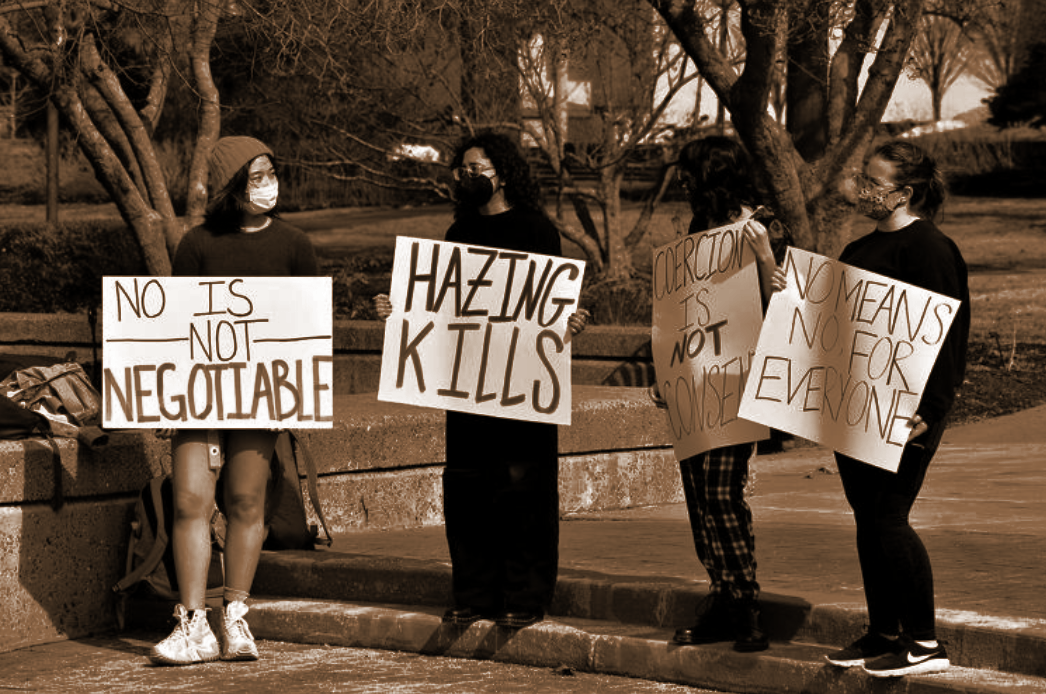
The case of Hayes College is not an isolated one. Hazing is a problem of the past, of the problem, and will persist into the future if left unchallenged. Students initiating hazing rituals are our future consultants, bankers, lawyers and leaders. Let us not forget Boris Johnson, David Cameron and the infamous Bullingdon Club₆. Considering how hazing has influenced our past (and likely future) prime ministers, it is vital to challenge the ubiquity of racist university rituals. The USA has typically been centred in discourse on hazing - yet, we are seeing the UK match its collegiate peer in hazing related incidents₇. Deaths associated with peer pressured binge drinking, and coercion into sexualised behaviour are a symptom of this unchecked problem₈. Older students initiating this ‘right of passage’ into prestigious societies pulls upon existing power dynamics to shame younger and more vulnerable students into taboo behaviours₉. White students are dominant in abusing this dynamic, and have been using this power to humiliate and degrade BAME students through rituals as outlined in this expose.
Academic institutions should take more responsibility in illuminating this unspoken taboo and acknowledging how the power dynamic of those ‘initiating’ the ‘right of passa ge’ into prestigious societies. I also call upon fellow alumni to speak out further of events they witnessed in their time at Hayes college (Universities UK). The continuation of such challenges and tasks is cognitive dissonance is further established by our actions as alumni. The glorification of rituals as an essential part of university life must pass. The handing down of harmful practices from graduates to freshers must be nipped in the bud. Societies’ customs quickly become initiations, then humiliating challenges before dangerous rituals. Binge drinking challenges pose risk to life, and mental wellbeing. The social pressure of assimilating to the racist hazing culture of university institutions. No sufficient action has been taken against the perpetrators of racist abuse in this hazing practice₁₀, and I urge Hayes to do more than release an empty statement of ‘striving for change’.
To actually strive to change universities need to be outspoken on its hazing problem. First sanctioning racist ‘challenges’, initiations and behaviour by suspending students with a zero-tolerance policy for racist abuse. Secondly it should appropriately support its BAME students, creating safe-spaces and support networks for students. Thirdly, reporting systems should be in place, calling out unspoken racism and calling for accountability for unacceptable humiliating initiations. Finally Alumni like myself need to speak up about our experiences and report our stories to break the loud silence on racism in the university₁₁.
No such ‘joke’ is without consequence and it is time to hold students and establishments accountable for their misconduct and blatant racism.